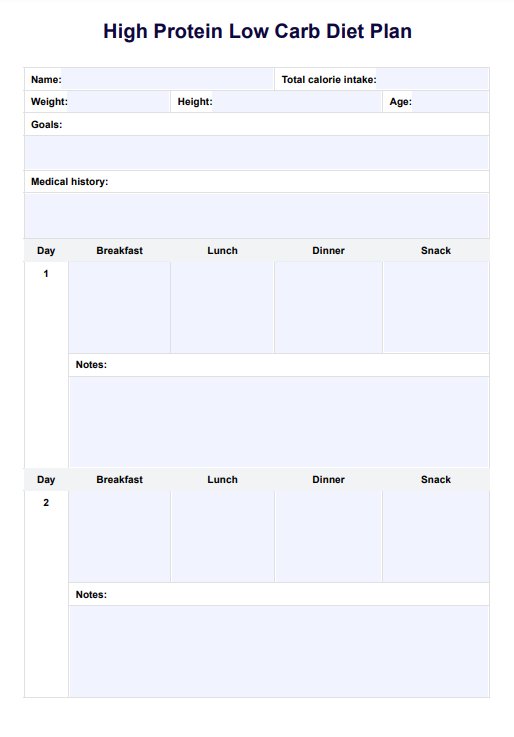It is possible to lose weight on this diet, as some people may experience reduced appetite and improved metabolism. However, results can vary depending on individual factors like activity level and overall calorie intake.

High Protein Low Carb Diet Plan
Transform your client's health with our High Protein Low Carb Diet Plan template. Download it for free, and discover the basics and benefits of this diet.
High Protein Low Carb Diet Plan Template
Commonly asked questions
Eating only protein and no carbs may lead to short-term weight loss, as the body may burn fat for energy. However, depending on the diet's duration, this could result in nutrient imbalances or energy depletion over time.
While protein is essential, consuming excessive amounts on a low carb diet could potentially strain the kidneys or lead to an imbalance in nutrient intake. Maintaining a balanced approach is generally recommended, ensuring adequate fat and fiber intake as well.
EHR and practice management software
Get started for free
*No credit card required
Free
$0/usd
Unlimited clients
Telehealth
1GB of storage
Client portal text
Automated billing and online payments











